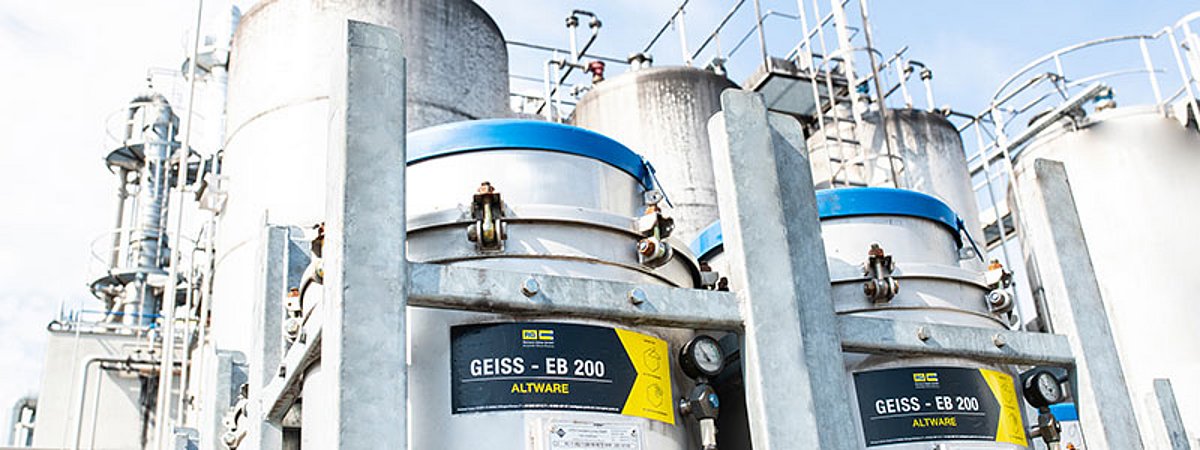Richard Geiss: BFH ruling for takeover of hazardous waste in the R2 procedure

Richard Geiss GmbH has won a landmark ruling on the tax classification of the acceptance of contaminated solvents for recycling at the Federal Fiscal Court - and thus created legal certainty for recyclers and customers.
For almost 13 years, the Bavarian solvent specialist fought against the view of the tax office and higher levels and has now finally prevailed. Not only Richard Geiss GmbH and its customers will benefit from this landmark ruling, but also the entire waste and disposal industry in Germany. For the first time, the takeover of hazardous waste as part of the R2 recycling process is now clearly regulated under tax law. The Federal Fiscal Court has clarified this once and for all: The takeover of contaminated solvents for recycling is not an exchange-like transaction. "We have been fighting for almost 13 years and have now finally been vindicated by the highest German tax court. This is not only a great success for us, but for all waste disposal companies and recyclers here in the country. The ruling has enormous implications," emphasizes Bastian Geiss, Managing Partner of Richard Geiss GmbH. The family business specializes in the professional treatment of solvents.
The ruling
This is what the ruling says: when hazardous waste is taken over for use in accordance with the R2 recovery procedure, there is no exchange-like turnover. This may sound abstract, but above all it simplifies the processes for disposal companies, recyclers and their customers and creates transparency and therefore fairness in pricing and invoicing. First and foremost, the ruling provides legal certainty. In the past, both waste disposal companies and their customers have had difficulties and uncertainties as to whether they were acting correctly under tax law when billing for waste disposal. "This was a recurring issue in the industry and associations. Now, for the first time, the transfer of hazardous waste is regulated clearly and uniformly throughout Germany in terms of tax law," explains Peer Linse, Commercial Director of Richard Geiss GmbH.
Transparency in prices and invoicing
The ruling obtained by Richard Geiss GmbH also makes the pricing for the takeover of hazardous waste more transparent and fairer. From now on, disposal companies and recyclers will be able to freely structure their offers and price calculations for waste in the R2 process. Graduated prices for disposal are just as possible as the offsetting of sales prices for regenerates in the calculation of takeover prices. All waste management companies that deal with hazardous waste in the R2 process can now assure customers that they will charge according to performance. "For us, this means that we can define the takeover costs of the old solvents according to CHC content. If we receive old goods with a high chlorinated hydrocarbon content from our customer, we can take this into account when pricing the disposal," explains Peer Linse.
Tax hurdle overcome
Richard Geiss GmbH has been committed to the sustainable approach of solvent recycling for 65 years. In the distillation columns at the company headquarters in Offingen, solvents are processed into high-purity distillates and fed back into a functioning recycling system. "With the ruling, we have overcome a tax hurdle that previously hindered or inhibited the circular economy. As a medium-sized company, we spared no expense or effort and went all the way to the highest instance, the Federal Fiscal Court. We won the ruling for the entire industry. I am very proud of that," says Bastian Geiss.
